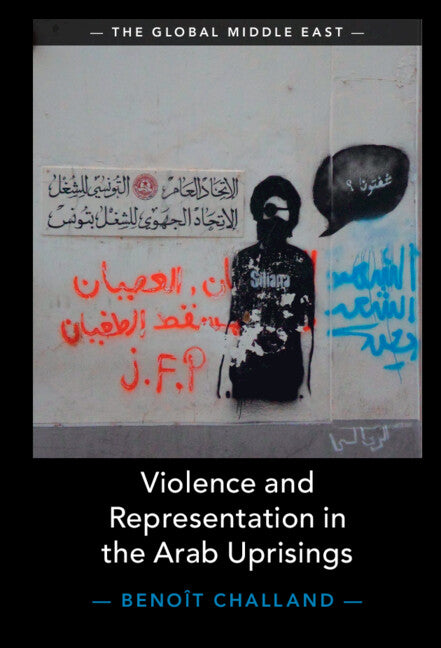Freshly Printed - allow 8 days lead
Couldn't load pickup availability
Violence and Representation in the Arab Uprisings
Considers the history of citizenship in Yemen and Tunisia to explain why democratic participation was undermined after the 2011 revolutionary wave.
Benoît Challand (Author)
9781108490184, Cambridge University Press
Hardback, published 9 February 2023
304 pages
23.5 x 15.7 x 3 cm, 0.82 kg
'Benoit Challand, combining historical and contemporary research, brings an original perspective to the analysis of the Arab Spring. Comparing Tunisia and Yemen through their colonial histories and contemporary conflicts, he explores the role of violence in popular protests, their representations in graffiti and the emergence of new forms of citizenship.' Bryan S. Turner, Australian Catholic University and the Graduate Center CUNY
Providing a longue durée perspective on the Arab uprisings of 2011, Benoît Challand narrates the transformation of citizenship in the Arab Middle East, from a condition of latent citizenship in the colonial and post-independence era to the revolutionary dynamics that stimulated democratic participation. Considering the parallel histories of citizenship in Yemen and Tunisia, Challand develops innovative theories of violence and representation that view cultural representations as calls for a decentralized political order and democratic accountability over the security forces. He argues that a new collective imaginary emerged in 2011 when the people represented itself as the only legitimate power able to decide when violence ought to be used to protect all citizens from corrupt power. Shedding light upon uprisings in Yemen and Tunisia, but also elsewhere in the Middle East, this book offers deeper insights into conceptions of violence, representation, and democracy.
List of figures
Acknowledgements
Prolegomenon: a two-layered book
Introduction
Part I. The Making of Latent Citizenship: 1. Revisiting the foundations of citizenship: the Colonial era
2. Post-independence aspirations, security custodianship and latent citizenship
Part II. Informal Revolutionary Practices (2011–2014): 3. The three facets of vis populi: re-articulating active citizenship
4. Revolutionary crossroads: security reform and the limits of informalism
Part III. Embattled Revolutionary Legacies (2014–2021): 5.Two tales of decentralization
6. Strong men syndrome and the re-subjectivation of citizenship
Conclusions
Bibliography
Index.
Subject Areas: Revolutionary groups & movements [JPWQ], Geopolitics [JPSL], Political structures: totalitarianism & dictatorship [JPHX], Political structures: democracy [JPHV]


